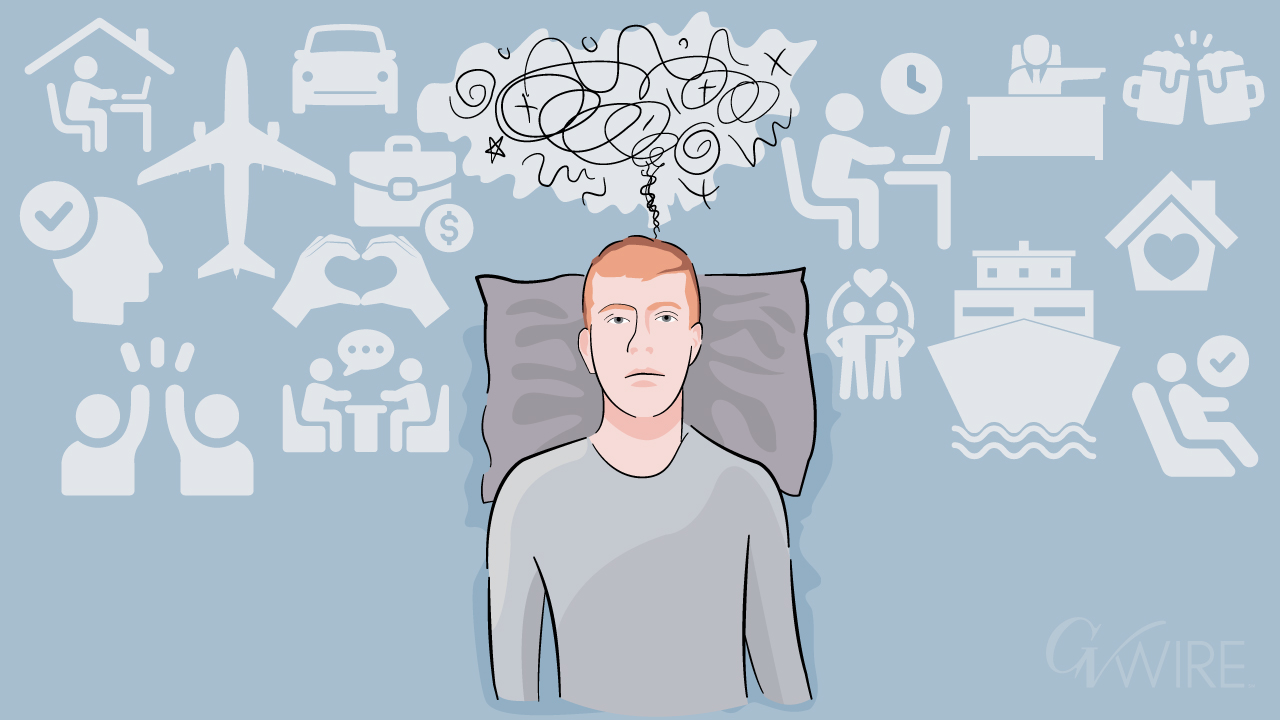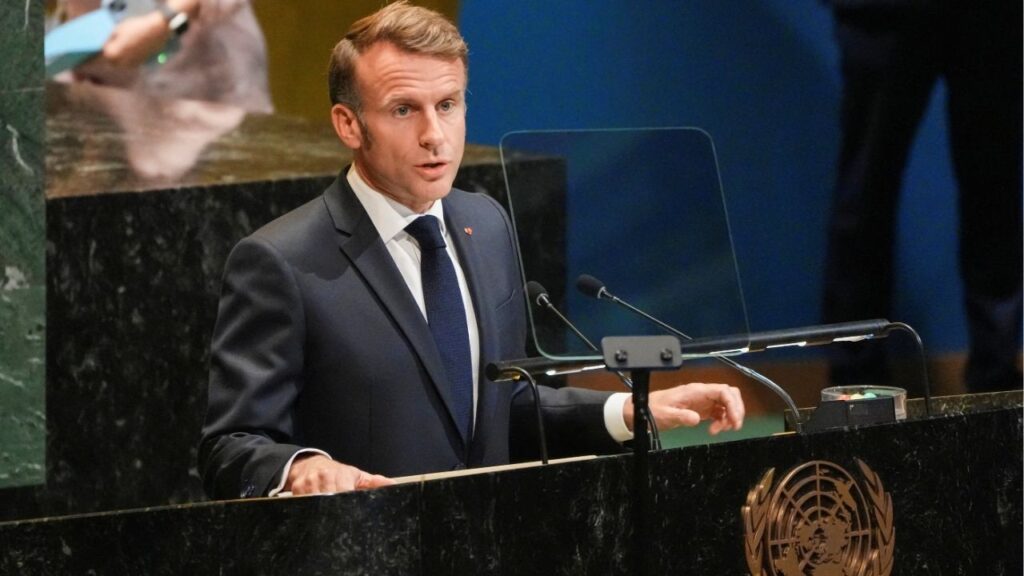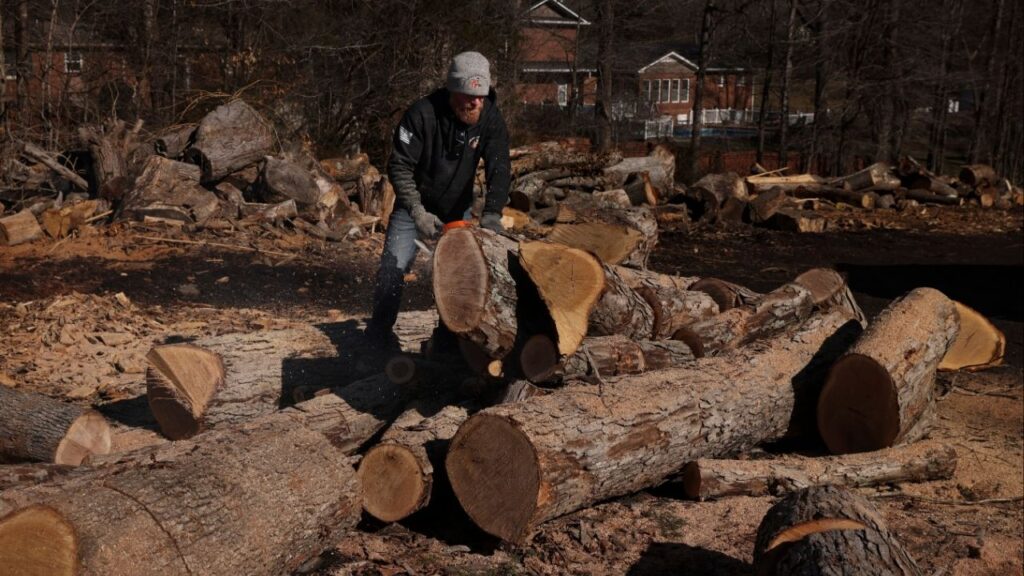Millennials are using their paid time off just to catch up on sleep, reflecting an economy and work culture so demanding that rest has become a rare luxury. (GV Wire/Illustration/Paul Marshall)

- Millennials juggle rising costs, second jobs, and solo responsibilities, turning paid time off into basic survival recovery time.
- A relentless workplace culture blurs boundaries, rewards overwork with more work, and fuels burnout that transforms PTO from a perk into a lifeline.
- Millennials ask not for less work, but for sustainable workloads and humane expectations in an increasingly unforgiving economy.
Share
|
Getting your Trinity Audio player ready...
|
Here’s a statistic that says more about the state of American work culture than any corporate report ever could: 43% of Millennials used paid time off simply to catch up on sleep.
Not to travel. Not to relax. Not to disconnect. Just to rest long enough to function again.
And, honestly, it tracks.
Recent labor surveys show that more than half of Millennials work a second job to make ends meet. Pew Research notes that 56% of us are not married, meaning many are managing households, finances, and responsibilities alone.

Anthony W. Haddad
The Millennial View
Meanwhile, a majority of Millennial homeowners — 55%, according to The Motley Fool — now carry mortgages with rising interest rates, insurance premiums, and maintenance costs that make homeownership feel less like a milestone and more like a second full-time job.
For those who aren’t homeowners, rent hikes swallow paychecks faster than savings accounts can grow. Moreover, for those lucky ones, 18% of 25 to 34-year-olds live with their parents with the main sentiment that it is better on their wallets.
On top of all this sits a full-time, 40-hour workweek that looks nothing like the stable, predictable system previous generations entered. Add the pressure to maintain a social life, stay healthy, and afford an economy that seems to inflate by the week — it becomes clear why PTO has quietly transformed into recovery time.
It Feels Like Sleep Is a Luxury
We are overextended in every direction, and sleep has become collateral damage.
Using PTO for rest isn’t an indulgence; it’s the only option many of us have left. Millennials are doing everything “right” and still feel behind. We grew up believing the American Dream was achievable if we worked hard enough. Instead, we’re confronting the reality that success requires more labor, more hours, and more sacrifice — all while the goalposts continue to move.
Complicating this further is workplace culture itself. The idea that “good employees” are rewarded with more work remains alive and well. Tasks accumulate. Boundaries blur. And too often, leadership is detached from the day-to-day realities employees face. It’s easy to issue guidance from the top. It’s a whole different thing to live the workload below. That disconnect breeds burnout. It drains morale. It turns PTO from a benefit into a lifeline.
This isn’t about blaming older generations; the economic landscape was different when they came of age. But today’s workers live in a world where communication is instant, boundaries are porous, and disconnecting is nearly impossible. Being reachable at all times has quietly become the norm. And it’s those conditions — more demanding, less forgiving — that Millennials are navigating now, and that Gen Z will inherit even more intensely.
So What Should Change?
At minimum, employers must recognize that exhaustion is not a character flaw. It’s a workplace issue. Respecting boundaries should not be a luxury. Providing support instead of criticism when things go wrong should be the norm, not the exception. And remembering that employees are human beings — not endlessly replaceable — must guide how organizations operate.
A healthy workplace is one where PTO is used for rest by choice, not necessity. Millennials are not asking for less work. We’re asking for sustainable work. We’re asking to participate in an economy that doesn’t require a second job to stay afloat. We’re asking to be treated with the same care companies expect reflected in their product.
The fact that PTO is becoming the only opportunity to sleep is not a quirky generational habit — it’s a warning sign. If employers ignore it, burnout won’t just impact productivity. It will reshape the workforce entirely, and not in a way any company can afford.
—
Connect with Anthony W. Haddad on social media. Got a tip? Send an email.



















